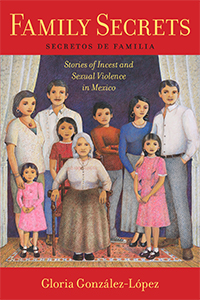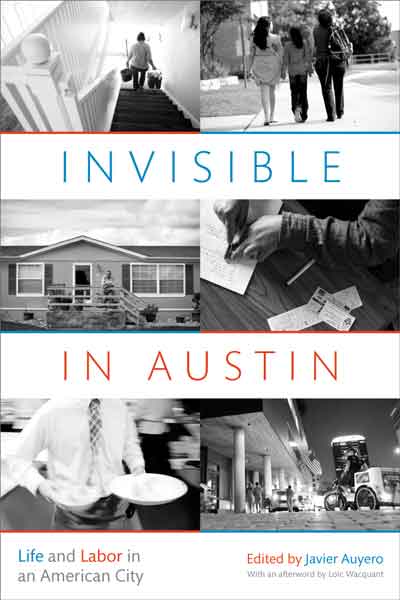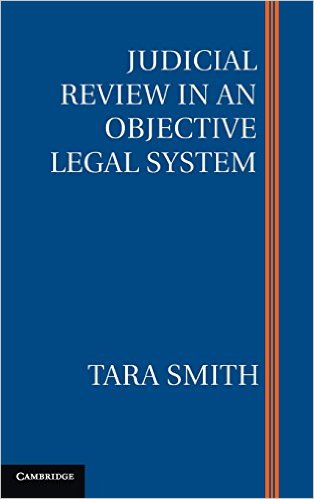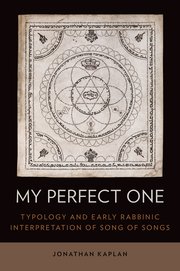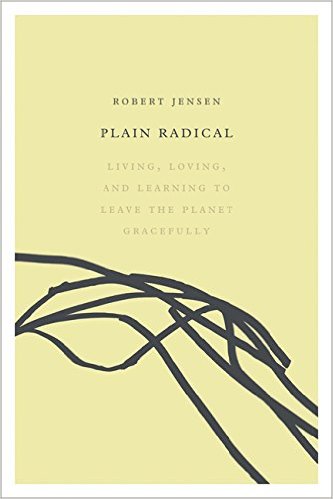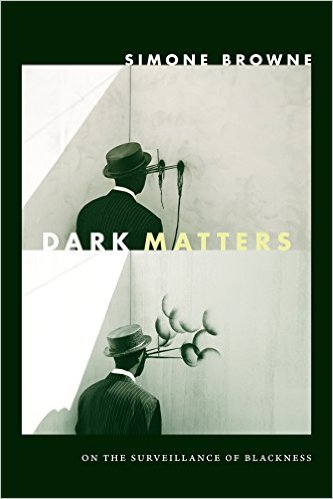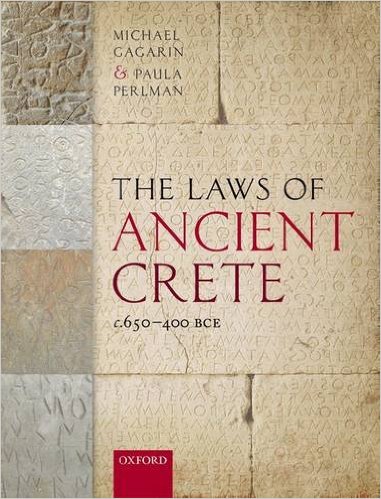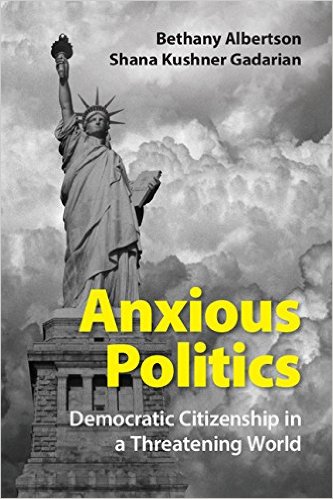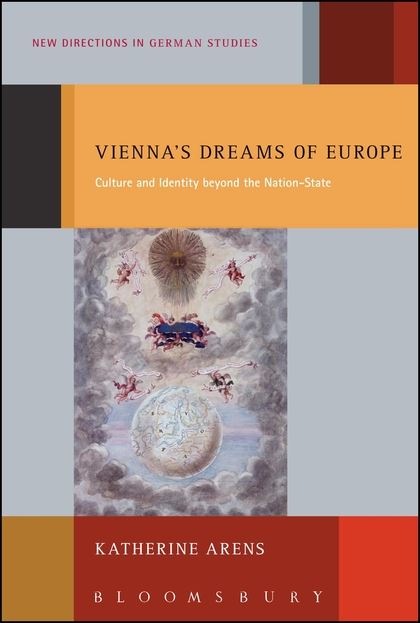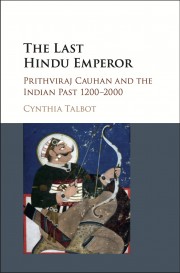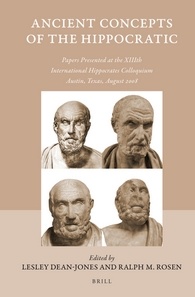Family Secrets: Stories of Incest and Sexual Violence in Mexico
New York University Press, Sept. 2015
By Gloria González-López, associate professor, Department of Sociology
In Family Secrets, Gloria González-López tells the life stories of 60 men and women in Mexico who saw their lives irrevocably changed in the wake of childhood and adolescent incest. Through gripping, emotional narrative, González-López brings the deeply troubling, hidden and unspoken issues of incest and sexual violence in Mexican families to light. She contends that family and cultural structures in Mexican life enable incest and the culture of silence that surrounds it. Update: The Spanish translation is available by Siglo XXI Editores, 2019.
Invisible in Austin: Life and Labor in an American City
University of Texas Press, Sept. 2015
By Javier Auyero, professor, Department of Sociology, with 14 graduate students
Austin, Texas is renowned as a high-tech, fast-growing city for the young and creative, a cool place to live, and the scene of internationally famous events such as SXSW and Formula 1. But as in many American cities, poverty and penury are booming along with wealth and material abundance in contemporary Austin. Rich and poor residents lead increasingly separate lives as growing socioeconomic inequality underscores residential, class, racial, and ethnic segregation. These poignant stories compel us to see how poor people who provide indispensable services for all city residents struggle daily with substandard housing, inadequate public services and schools and environmental risks.
Judicial Review in an Objective Legal System
Cambridge University Press, Sept. 2015
By Tara Smith, professor, Department of Philosophy
While all agree that courts must be objective, people differ sharply over what this demands in practice: fidelity to the text? To the will of the people? To certain moral ideals? Smith breaks through the false dichotomies inherent in dominant theories —various forms of Originalism, Living Constitutionalism and Minimalism — to present a new approach to judicial review. She contends that we cannot assess judicial review in isolation from the larger enterprise of which it is a part. By providing careful clarification of both the function of the legal system as well as of objectivity itself, she produces a compelling, firmly grounded account of genuinely objective judicial review. Smith’s innovative approach marks a welcome advance for anyone interested in legal objectivity and individual rights.
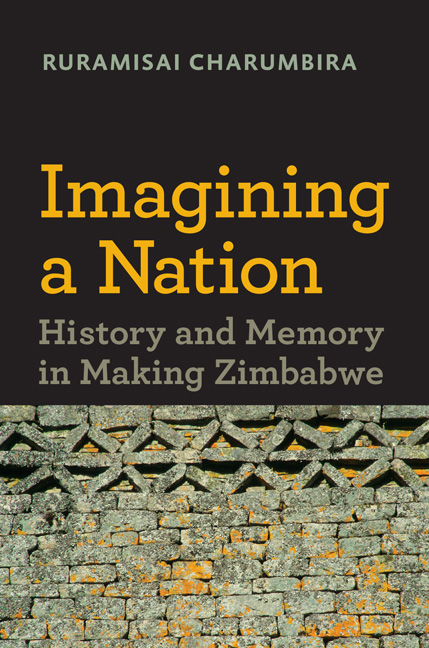
Imagining a Nation: History and Memory in Making Zimbabwe
University of Virginia, Sept. 2015
By Ruramisai Charumbira, assistant professor, Departments of History and African and African Diaspora Studies
Imagining a Nation analyzes competing narratives of the founding of Rhodesia/Zimbabwe as constructed by political and cultural nationalists both black and white since that country’s founding as a British colony in 1890. Through a cast of characters from far-flung places, the book shows that history and memory in and of one small place can have a far-reaching impact in the wider world. Imagining a Nation shows how ordinary people invested in the soft power of individual, social and collective memories to create and perpetuate exclusionary national myths.
My Perfect One: Typology and Early Rabbinic Interpretation of Song of Songs
Oxford University Press, Sept. 2015
By Jonathan Kaplan, assistant professor, Department of Middle Eastern Studies
Kaplan examines early rabbinic interpretation of Song of Songs found in the tannaitic midrashim, a collection of works of rabbinic literature from the first few centuries of the Common Era. In a departure from earlier scholarship, Kaplan advocates a more nuanced understanding of the approach of the early sages, who employed typological interpretation in order to correlate Song of Songs with exemplary events in Israel’s history. Throughout the book Kaplan explores ways in which this portrayal helped shape a model vision of rabbinic piety as well as an idealized portrayal of their beloved, God, in the wake of the destruction, dislocation and loss the Jewish community experienced in the first two centuries of the Common Era.
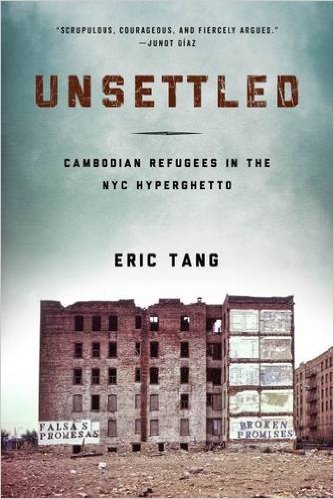
Unsettled: Cambodian Refugees in the NYC Hyperghetto
Temple University Press, Oct. 2015
By Eric Tang, assistant professor, Department of African and African Diaspora Studies
After surviving the Khmer Rouge genocide, followed by years of confinement to international refugee camps, as many as 10,000 Southeast Asian refugees arrived in the Bronx during the 1980s and ’90s. Unsettled chronicles the unfinished odyssey of Bronx Cambodians, closely following one woman and her family for several years as they survive yet resist their literal insertion into concentrated Bronx poverty. Tang tells the harrowing and inspiring stories of these refugees to make sense of how and why the displaced migrants have been resettled in the “hyperghetto.” He argues that refuge is never found, that rescue discourses mask a more profound urban reality characterized by racialized geographic enclosure, economic displacement and unrelenting poverty, and the criminalization of daily life.
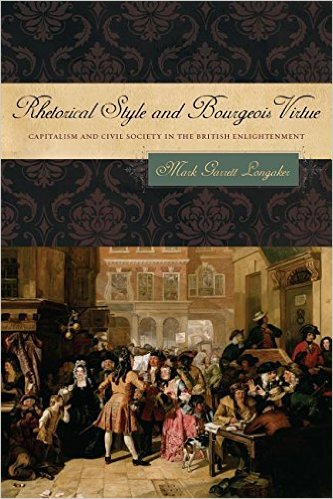
Rhetorical Style and Bourgeois Virtue: Capitalism and Civil Society in the British Enlightenment
The Pennsylvania State University Press, Oct. 2015
By Mark Garrett Longaker, associate professor, Departments of Rhetoric & Writing, Communication Studies and English
During the British Enlightenment, the correlation between effective communication and moral excellence was undisputed — so much so that rhetoric was taught as a means of instilling desirable values in students. Longaker’s study lingers on four British intellectuals from the late 17th to the mid-19th century: philosopher John Locke, political economist Adam Smith, rhetorical theorist Hugh Blair and sociologist Herbert Spencer. Across one hundred and fifty years, these influential men sought to mold British students into good bourgeois citizens by teaching them the discursive habits of clarity, sincerity, moderation, and economy, all with one incontrovertible truth in mind: the free market requires virtuous participants in order to thrive. Longaker portrays the British rhetorical tradition as beholden to the dual masters of ethics and economics, and he sheds new light on the deliberate intellectual engineering implicit in Enlightenment pedagogy.
Plain Radical: Living, Loving, and Learning to Leave the Planet Gracefully
Counterpoint/Soft Skull, Oct. 2015
By Robert Jensen, professor, journalism and Center for Women and Gender’s Studies
As ecological crises cascade around us and social systems fail to address deep structural problems, it’s easy for many to slip into denial or despair. Jensen’s account of his intellectual and emotional relationship with Jim Koplin is a tale about how to face honestly the crises without being overwhelmed. From his birth on a Depression-era Minnesota farm through every major social movement of the last half of the 20th century, Koplin fashioned a life and politics that blended the best of rural traditions with a relentless radical critique of concentrated power and illegitimate authority. Jensen moves between the personal and the political to trace the development of Koplin’s holistic approach to social justice and ecological sustainability, which never promised easy answers but instead demonstrated how making hard choices keeps alive the hopes for progressive change.
Dark Matters: On the Surveillance of Blackness
Duke University Press, Oct. 2015
By Simone Browne, assistant professor, Departments of African & African Diaspora Studies and Sociology
In Dark Matters Browne shows how contemporary surveillance technologies and practices are informed by the long history of racial formation and by the methods of policing black life under slavery, such as branding, runaway slave notices and lantern laws. Placing surveillance studies into conversation with the archive of transatlantic slavery and its afterlife, Browne draws from black feminist theory, sociology and cultural studies to analyze texts. From the design of the 18th-century slave ship Brooks, Jeremy Bentham’s Panopticon to contemporary art, literature, biometrics and post-9/11 airport security practices.
The Laws of Ancient Crete, c. 650-400 BCE
Oxford University Press, UK, Oct. 2015
By Michael Gagarin, professor emeritus; and Paula Perlman, professor, Department of Classics
This volume presents the Greek text of approximately 200 stone inscriptions, which detail the laws of ancient Crete in the archaic and classical periods, c.650-400 BCE. The texts of the inscriptions, many of which are fragmentary and relatively unknown, are accompanied by an English translation and also two commentaries; one focused on epigraphical and linguistic issues, and the other, requiring no knowledge of Greek, focused on legal and historical issues. The texts are preceded by a substantial introduction which surveys the geography, history, writing habits, social and political structure, economy, religion and law of Crete in this period.
Anxious Politics: Democratic Citizenship in a Threatening World
Cambridge University Press, Oct. 2015
By Bethany Albertson, assistant professor, Department of Government; and Shana Kushner Gadarian
Anxious Politics explore the emotional life of politics with particular emphasis on how political anxieties affect public life. The authors show that political anxiety triggers engagement in politics in ways that are potentially both promising and damaging for democracy. Using four substantive policy areas (public health, immigration, terrorism and climate change), they demonstrate that anxiety affects the how we consume political news, who we trust and what politics we support. Anxiety about politics triggers coping strategies in the political world, where these strategies are often shaped by partisan agendas.
Vienna’s Dreams of Europe
Bloomsbury, Oct. 2015
By Katherine Arens, professor, Department of Germanic Studies
For a millennium, Austrian writers have used images of Europe and its hegemonic culture as their political and cultural reference points. Yet in discussions of Europe’s nation-states, Austria appears only as an afterthought, no matter that its precursor states-the Holy Roman Empire, the Austrian Empire and Austria Hungary-represent a globalized European cultural space outside the dominant paradigm of nationalist colonialism. To challenge standard accounts of 18th- through 20th-century European imperial identity construction, Vienna’s Dreams of Europe introduces a group of Austrian public intellectuals and authors who have since the 18th century construed their own publics as European.
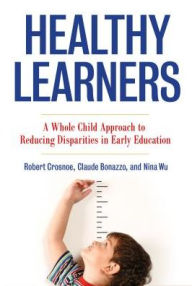
Healthy Learners: A Whole Child Approach to Reducing Disparities in Early Education
Teachers College Press, Nov. 2015
By Robert Crosnoe, professor, Department of Sociology; Claude Bonazzo and Nina Wu, sociology graduate students
The early childhood field has long understood that targeting the intersection of health and learning is integral to serving children, especially those from disadvantaged backgrounds. Yet this developmentally informed educational philosophy has been jeopardized by an increased emphasis on standards-based accountability. The authors explain why healthy learning is good for children, schools and society and they suggest concrete ways to make it happen. Moving back and forth between national statistics and the intimate voices of parents, teachers and service providers in a large urban school district, they formulate an action plan for educating the whole child and reducing educational inequities. While the book covers a broad spectrum of American children, special attention is given to the growing population of Mexican immigrant children.
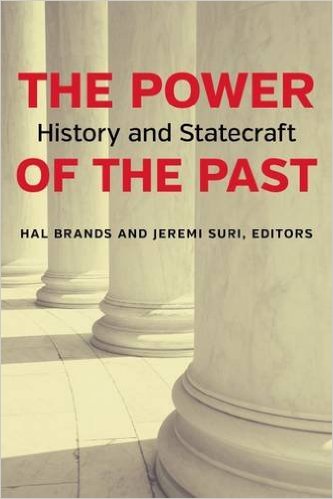
The Power of the Past: History and Statecraft
Brookings Institution Press, Nov. 2015
Edited by Jeremi Suri, professor, Department of History and LBJ School of Public Affairs; and Hal Brands
History, with its insights, analogies and narratives, is central to the ways in which the United States interacts with the world. Historians and policymakers, however, rarely engage one another as they should. This book bridges that divide, bringing together leading scholars and policymakers to address the essential questions surrounding the history-policy relationship.
The Last Hindu Emperor: Prithviraj Chauhan and the Indian Past, 1200-2000
Cambridge University Press, UK, Nov. 2015
By Cynthia Talbot, Departments of History and Asian Studies
This fascinating new study traces traditions and memories relating to the 12th-century Indian ruler Prithviraj Chauhan: a Hindu king who was defeated and overthrown during the conquest of Northern India by Muslim armies from Afghanistan. Surveying a wealth of narratives that span more than 800 years, Talbot explores the reasons why he is remembered and by whom. The Last Hindu Emperor sheds new light on the enduring importance of heroic histories in Indian culture and the extraordinary ability of historical memory to transform the hero of a clan into the hero of a community, and finally a nation.
Ancient Concepts of the Hippocratic
Brill, Nov. 2015
Edited by Lesley Dean-Jones, associate professor and chair, Department of Classics; and Ralph Rosen
In Ancient Concepts of the Hippocratic, Lesley Dean-Jones and Ralph Rosen have gathered 19 international authorities in ancient medicine to identify commonalities among the treatises of the Hippocratic Corpus which led scholars of antiquity to group them under the single name of Hippocrates. Most recent scholarship has drawn attention to the divergences between individual treatises and groups of treatises, emphasizing the agonistic facet of the ancient medical profession. In contrast, in this volume contributors look to find points of agreement between the writings that go beyond claims of rationality. Topics considered include ontological claims about the discipline of medicine itself, the view of the patient as a perceiving unity, theories on the function of glands and the importance of regimen.
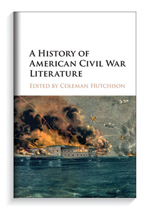
A History of American Civil War Literature
Cambridge University Press, Dec. 2015
Edited by Coleman Hutchison, associate professor, Department of English
The first omnibus history of the literature of the American Civil War, A History of American Civil War Literature examines the way in which the war has been remembered and rewritten over time in prose, poems and other narratives.

Afro-Paradise: Blackness, Violence and Performance in Brazil
University of Illinois Press, Jan. 2016
By Christen A. Smith, assistant professor,
Departments of Anthropology and African and African Diaspora Studies
Tourists exult in Bahia, Brazil, as a tropical paradise infused with the black population’s one-of-a-kind vitality. But the alluring images of smiling black faces and dancing blackbodies masks an ugly reality of anti-black authoritarian violence. Afro-Paradise explores the dialectic of glorified representations of black bodies and subsequent state repression in Brazil.

